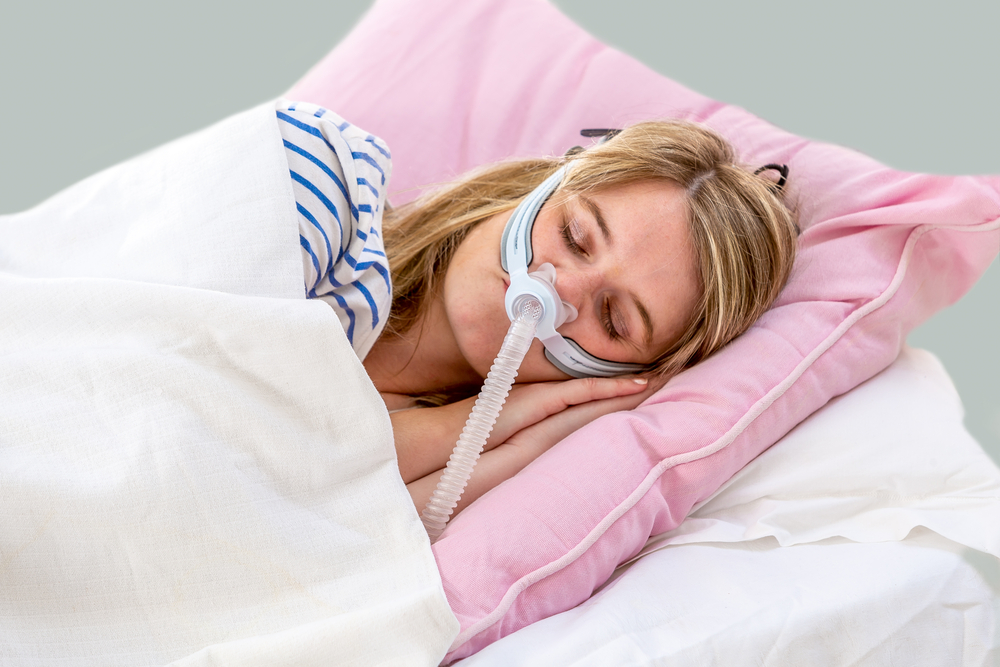SLEEP APNEA 101
How Are Fibromyalgia and Sleep Apnea Connected?
If you have difficulty breathing, it can be a massive disturbance to the quality of your sleep. Widespread musculoskeletal tension and abnormal sleeping patterns can often go hand-in-hand. Fibromyalgia can worsen symptoms of sleep apnea, similar to how patients with sleep apnea report ongoing muscle pain and tension. If you have fibromyalgia or sleep apnea, always consult with a healthcare professional to understand your treatment options.
What Is Fibromyalgia?
Fibromyalgia is a disorder of the musculoskeletal system that is often accompanied by widespread muscle pain, tenderness, and tension. The chronic pain seen in patients can lead to mood disorders and sleep problems.

It is caused by a disconnect in the processing signals between the brain and spinal cord, and this disconnect can increase the sensations of pain felt throughout the body in patients. People with fibromyalgia may also end up having coinciding issues such as digestive trouble, migraines, or depression.
What Are the Common Symptoms of Fibromyalgia?
The symptoms of fibromyalgia are widespread, which makes proper diagnosis more difficult. The symptoms patients associate with fibromyalgia are also common symptoms of other disorders. If you suspect fibromyalgia is the culprit, always consult with a healthcare professional for further guidance.
- Muscle stiffness
- Muscle tension
- Depression
- Anxiety
- Brain fog
- Headaches
- Fatigue
How Is Sleep Apnea Different From Fibromyalgia?
Sleep apnea is a disorder in which breathing is inconsistent, leading to dangerous pauses between breaths throughout the night. The muscle tissues become too relaxed in patients with sleep apnea, causing it to block their airways. The key difference is that fibromyalgia stems from a musculoskeletal disorder while sleep apnea causes trouble breathing.
What Are the Shared Symptoms of Sleep Apnea and Fibromyalgia?
While fibromyalgia is uniquely characterized by muscle tension, it is thought by brain and spinal cord experts that the lack of sleep caused by sleep apnea could aggravate the muscle tenderness seen with fibromyalgia. Similarly, the pain signals present in fibromyalgia can make it harder for people to breathe smoothly during the night. If you think you are experiencing sleep apnea, fibromyalgia, or both, understand these common symptoms:
- Insomnia
- Daytime sleepiness and fatigue
- Mood disorders
- Difficulty concentrating on everyday tasks
What Are the Common Treatments Available for Fibromyalgia and Sleep Apnea?

If your doctor suspects that sleep apnea is causing your symptoms of fibromyalgia, they suggest starting with sleep apnea treatment to ensure you are breathing properly while you sleep.
Treatment #1
Continuous Positive Airway Pressure (CPAP)
Positive airway pressure machines are common in the treatment of sleep apnea. CPAP machines specifically allow for continuous pressure throughout the night to help sleep apnea patients with an ongoing flow of oxygen when their brains forget to signal to them that it’s time to take a breath. This machine is key in helping prevent the airway from being obstructed. Some people find CPAP machines to be uncomfortable, further increasing the difficulty of getting a good night’s sleep. However, many have reported that their sleep has improved with the machine and they have much more energy throughout the day.
Treatment #2
Surgery
Surgey is a more serious treatment option for sleep apnea. It usually won’t be the first line of treatment for patients, but it is an option for those who have difficulty using a CPAP machine. It’s important to understand that recovery from surgery for sleep apnea can have a long recovery time and lasting side effects.
Treatment #3
Dental Devices
Dental Devices and Oral Appliance Therapy for sleep apnea, while primarily designed to address sleep-related breathing issues, may indirectly benefit individuals with fibromyalgia in the following ways:
- Improved Sleep Quality: Oral Appliance Therapy for sleep apnea can enhance sleep quality, potentially reducing fatigue and sleep disturbances in individuals with fibromyalgia.
- Reduced Fatigue: By addressing sleep apnea, oral appliance therapy may contribute to better-rested nights, potentially decreasing overall fatigue and daytime sleepiness associated with fibromyalgia.
- Enhanced Cognitive Function: Improved sleep quality can positively impact cognitive function, potentially alleviating symptoms like “fibro fog” in individuals with fibromyalgia.
- Pain Management: While the direct impact is unclear, addressing sleep apnea may indirectly contribute to better pain management in fibromyalgia by improving overall sleep quality.
What To Do If You Have Fibromyalgia or Sleep Apnea
If you have fibromyalgia or sleep apnea, always consult with a sleep expert or brain and spinal cord specialist to evaluate your individual case. A specialist can work with you to navigate the complexities of sleep issues and find a treatment plan that is suited to your needs.
Do You Have Sleep Apnea or Fibromyalgia?
Contact us to learn what treatment options will work best for you.
Contact us
Call us
Location
1700 Eagle Harbor Pkwy, Suite 7
Fleming Island, FL 32003
Hours
Monday 9am- 4pm
Tuesday 9am- 4pm
Wednesday 10am - 5pm
Thursday 9am- 4pm
Friday By Appointment
Saturday Closed
Sunday Closed